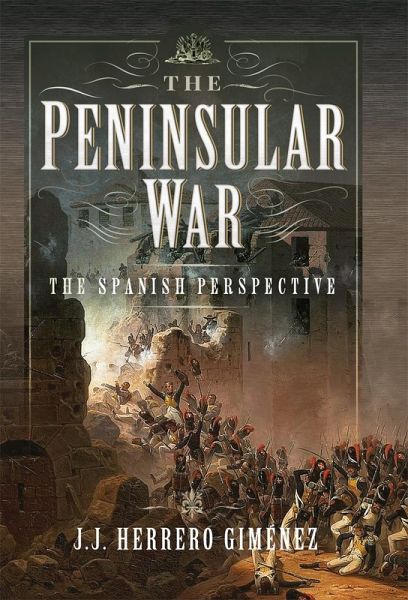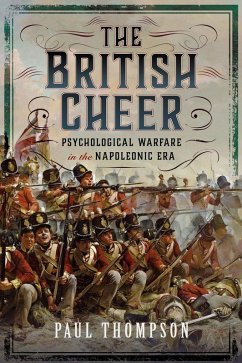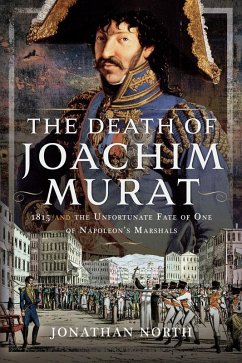
Peninsular War (eBook, PDF)
The Spanish Perspective
Versandkostenfrei!
Sofort per Download lieferbar
8,95 €
inkl. MwSt.
Weitere Ausgaben:

PAYBACK Punkte
4 °P sammeln!
The Peninsular War has been extensively studied by British historians for decades, even centuries, but the Spanish contribution to the conflict, which was fundamental to the defeat of Napoleon's armies, has been largely relegated to minor role. This book is an attempt to rebalance our understanding of the campaign in Iberia, written by a Spanish historian and translated into English for the first time. The book does not attempt to minimize the problems the Spanish experienced nor the catastrophic defeats suffered by the Spanish Army, but the reasons for these setbacks are viewed and analyzed f...
The Peninsular War has been extensively studied by British historians for decades, even centuries, but the Spanish contribution to the conflict, which was fundamental to the defeat of Napoleon's armies, has been largely relegated to minor role. This book is an attempt to rebalance our understanding of the campaign in Iberia, written by a Spanish historian and translated into English for the first time. The book does not attempt to minimize the problems the Spanish experienced nor the catastrophic defeats suffered by the Spanish Army, but the reasons for these setbacks are viewed and analyzed from the Spanish viewpoint. With the finest elements of the Spanish Army serving with the French forces in Denmark, Spain was virtually undefended when Napoleon's armies marched into the Iberian Peninsula. New armies had to be raised virtually from scratch to fight the invader in a country where, as the Duke of Wellington remarked, small armies were beaten and large armies starved. The logistical and political difficulties faced by the Spaniards are fully explored and explained. It is the big battles, nevertheless, which receive the most attention; both the great battles such as Tudela and Ocaña and the surprising victory at Bailén, and the smaller, lesser-known combats which took place across the Peninsula. The defeats, even destruction, of their armies, did not deter the Spaniards; in fact quite the contrary. Their cities, most notably Zaragoza, defied Napoleon's legions for months in some of the most savage fighting of any conflict as their streets were turned to rubble. Across the country, the ordinary citizens took up arms, attacking isolated French outposts and capturing enemy messengers and patrols - and the term guerrilla warfare came into being. Napoleon's marshals had never encountered such fanaticism and Spain became a posting dreaded by the French soldiers. As the war progressed, the Spanish armies became strong enough to win several battles, contributing decisively to the defeat of Napoleon in conjunction with the magnificent achievements of Sir Arthur Wellesley and his Anglo-Portuguese army. This unique book will help the reader understand the Spanish vision of the war, dismantling some false myths and exposing the reality of a country with an indomitable spirit that never accepted the new order that Napoleon tried to impose. It is the book that has been missing from the literature of the Peninsular War for far too long.
Dieser Download kann aus rechtlichen Gründen nur mit Rechnungsadresse in A, B, BG, CY, CZ, D, DK, EW, E, FIN, F, GR, HR, H, IRL, I, LT, L, LR, M, NL, PL, P, R, S, SLO, SK ausgeliefert werden.













